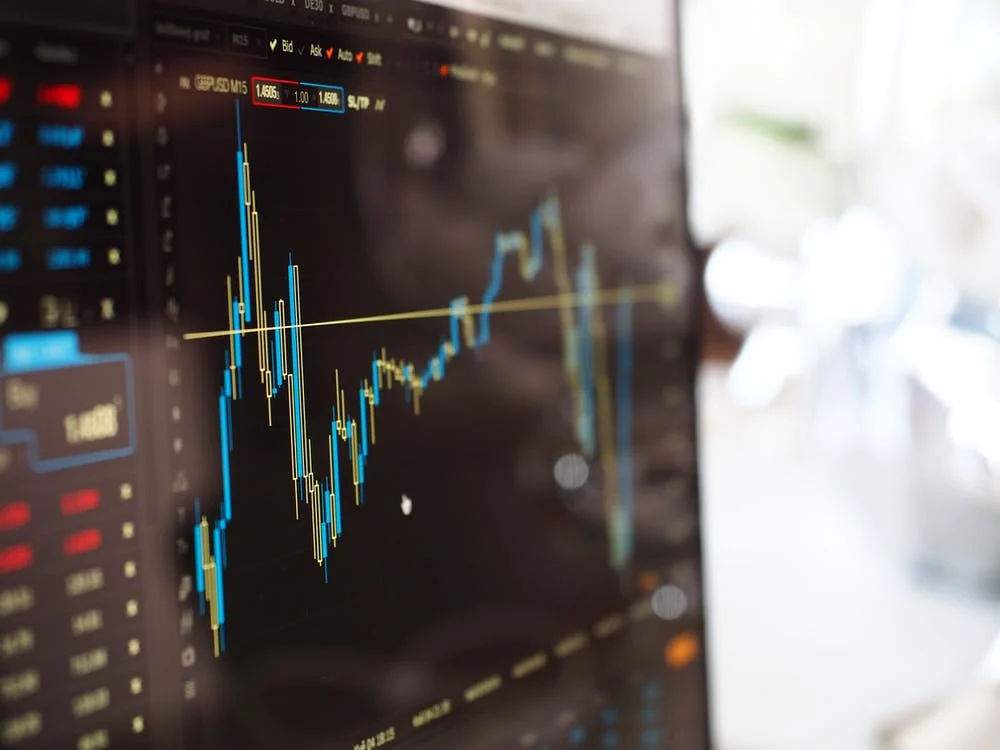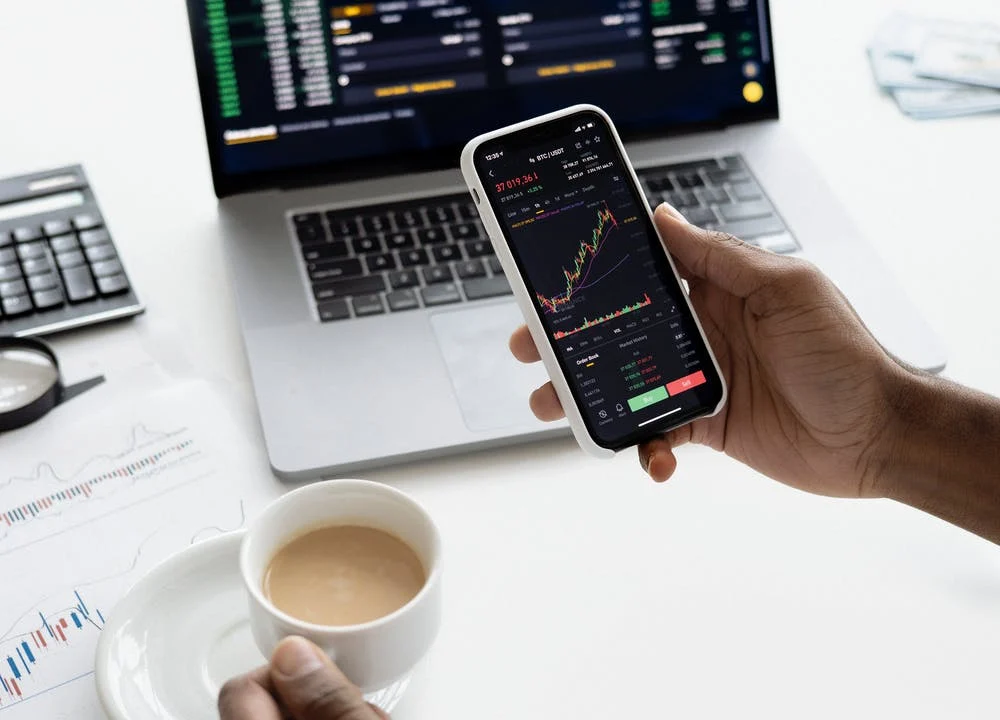How to choose the top places to trade online
More people than ever have started investing their money. This doesn’t just mean traditional investing, where you invest your money with the help of a mutual fund advisor or a stockbroker – more and more investment is being done online, through trading platforms, and online brokers.
Author:Dexter CookeReviewer:Darren McphersonJun 07, 2021114.9K Shares1.5M Views

More people than ever have started investing their money. This doesn’t just mean traditional investing, where you invest your money with the help of a mutual fund advisor or a stockbroker – more and more investment is being done online, through trading platforms, and online brokers.
Demand means supply and there are many online brokers and trading platforms available for you to choose from. This means finding a trustworthy option can seem challenging – which is where this guide should help. If you’re looking for a high-quality and dependable online trading platform or broker, here are some considerations to keep in mind.
Check The Interface
This is a basic requirement of any effective trading platform – the interface should be user-friendly and easy to navigate. An understandable interface is especially important if you’re a beginner to online trading, as you may not be able to find your way around the platform otherwise.
An important part of the interface is the tools that the platform offers. These depend on your trading preferences – for example, if you’re a day trader, market depth chartsare a must-have. On the other hand, an options trader will likely need tools that help them visualize their trading strategy better.
Many platforms lock these tools behind a paywall, preventing you from trying them out without paying. To get around this limitation, always make sure to read reviews of the platform and the tools it offers to get a better idea of how well they work and whether or not they meet your trading needs.
Go Local
While there are numerous global trading platforms available, there are just as many hyperlocal options you can choose from.
Local trading platforms are tailored to the unique needs and laws of individual countries. If you’re a citizen of Bahrain, you may find you get better returns by trading on a platform designed to trade on the local stock exchange instead of international options. Similarly, some countries have laws preventing or limiting international investment, which is not a concern when using local trading platforms.
Research The Brokerage
Many online trading platforms are offered by individual brokerages, and a good way to determine how trustworthy a platform is to first determine how reliable the brokerage is.
Some factors to research include:
- Reviews from existing customers
- Whether or not they provide you with insurance protection, in case the brokerage fails or goes under
- How they are regulated – for example, if you’re researching an American brokerage, it should be a memberof the Securities Investor Protection Corporation (SIPC) and Financial Industry Regulatory Authority (FINRA)
- What protections against fraud they offer
- Whether it is covered and protected by the Federal Deposit Insurance Corporation (FIDC), which guarantees the value of your investments
If you’re looking at a local trading platform, regulations will likely be different, so make sure to check for country-specific guarantees and protections as well.
Costs
Ideally, you want to choose a trading platform that charges you the lowest fees possible. Some key costs to keep an eye out for include:
- Equity Minimums:Platforms may require you to have a minimum value of equity present in your account to trade. Day trading platforms, especially, often have significant equity minimums.
- Commissions:Trading platforms often take a percentage of the profit you make while trading as a commission. Check to make sure these commissions are as low as possible. Some platforms may take lower commissions depending on how much money you have invested or how often you trade, so check those possibilities as well if you meet their minimum requirements.
- Account Fees:Depending on whether or not your trading platform of choice offers a free account, you may have to pay monthly or annual account fees to continue using the platform
- Upgrade Fees:Some trading platforms offer both free and paid accounts, with the paid accounts offering significantly more features and tools. Check to see how much upgrading your free account will cost you, should you decide to make the move to a paid account.
Consider Commercial Platforms
Brokerage platforms are not the only trading platforms available for you to choose from. Platforms run by brokerages are better known as prop platforms.
They are tailored to work with the broker that owns and runs the platforms, with features tailored to the broker’s offerings. They tend to work only with a single or a limited range of brokers, which means that if you want to change brokers, you will likely have to change platforms as well.
On the other hand, commercial platforms are run by independent companies whose business focuses on developing software tailored for investment and trading. While they lack the customized features that prop platforms offer, they are far more convenient for users who move from broker to broker or who have accounts with several brokers.
Choosing between the two depends on your personal preferences and needs. However, savvy investors can make a profit regardless of the type of trading platform they use.
How Do You Want To Invest?
Your investment strategy is one of the biggest factors that will determine which trading platform you use. If you’re looking to invest in individual stocks, for example, the platform should offer that functionality.
Additionally, cryptocurrency is quickly becoming one of the most popular investment options. Not all trading platforms allow you access to cryptocurrencies at the moment, so if this is a trading avenue you’re looking into, you should confirm that the platform permits you to invest the way you want to.
There are several other instruments that you may be considering, including options, mutual funds, and ETFs. No matter your preference, it’s essential to confirm that a platform offers the investment options you’re looking for before creating an account.
Choosing the right trading platform is only half the battle – making your first trade can often seem intimidating, but it’s a crucial step you must take as you start your investment journey. By choosing the right platform, however, you make taking that step a little easier since you have the peace of mind of knowing that your money is in the right hands.

Dexter Cooke
Author
Dexter Cooke is an economist, marketing strategist, and orthopedic surgeon with over 20 years of experience crafting compelling narratives that resonate worldwide.
He holds a Journalism degree from Columbia University, an Economics background from Yale University, and a medical degree with a postdoctoral fellowship in orthopedic medicine from the Medical University of South Carolina.
Dexter’s insights into media, economics, and marketing shine through his prolific contributions to respected publications and advisory roles for influential organizations.
As an orthopedic surgeon specializing in minimally invasive knee replacement surgery and laparoscopic procedures, Dexter prioritizes patient care above all.
Outside his professional pursuits, Dexter enjoys collecting vintage watches, studying ancient civilizations, learning about astronomy, and participating in charity runs.

Darren Mcpherson
Reviewer
Darren Mcpherson brings over 9 years of experience in politics, business, investing, and banking to his writing. He holds degrees in Economics from Harvard University and Political Science from Stanford University, with certifications in Financial Management.
Renowned for his insightful analyses and strategic awareness, Darren has contributed to reputable publications and served in advisory roles for influential entities.
Outside the boardroom, Darren enjoys playing chess, collecting rare books, attending technology conferences, and mentoring young professionals.
His dedication to excellence and understanding of global finance and governance make him a trusted and authoritative voice in his field.
Latest Articles
Popular Articles
